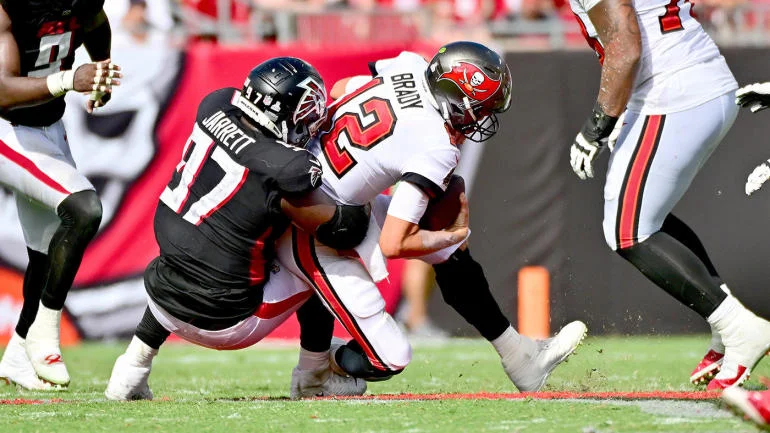A contentious third-down roughing-the-passer penalty against Tom Brady on Sunday prevented the Falcons from making a comeback against the Buccaneers. Given that the Falcons defensive lineman Grady Jarrett delivered a classic takedown of the starting quarterback, whose head made no contact with either Jarrett or the field in the process, fans and experts throughout the NFL had no issue dismissing the penalty as unnecessary. But after Sunday’s game, referee Jerome Boger informed the media that Jarrett’s method of knocking Brady to the ground was the one thing that wasn’t necessary.
“Boger responded, “What I had was the defender grabbed the quarterback when he was still in the pocket, and unnecessarily [threw] him to the ground. I was [making my decision] based on it.”
When asked if the recent head and neck injuries sustained by the Dolphins’ Tua Tagovailoa on a sack in which he was swung down had any bearing on his officials’ harsh criticism of those types of tackles, Boger brushed down the likelihood, saying, “No, not necessarily.”
Brady’s head, once again, never made any contact with the defender hitting him or the ground into which he was flung, which was a significant contrast from Jarrett’s sack of Tagovailoa. Jarrett embraced Brady’s midriff for the tackle and threw him toward the ground without reaching high or low on the contact. After Brady started arguing about the legality of the hit after becoming obviously enraged by the sack, officials finally penalized the hit.
With the Falcons trailing by six points and approximately three minutes remaining in the fourth quarter, the would-be sack threatened to put the ball back in their hands. However, the roughing-the-passer penalty ultimately extended the Bucs’ drive. Tampa Bay eventually prevailed 21-15 to maintain their lead in the NFC South.
